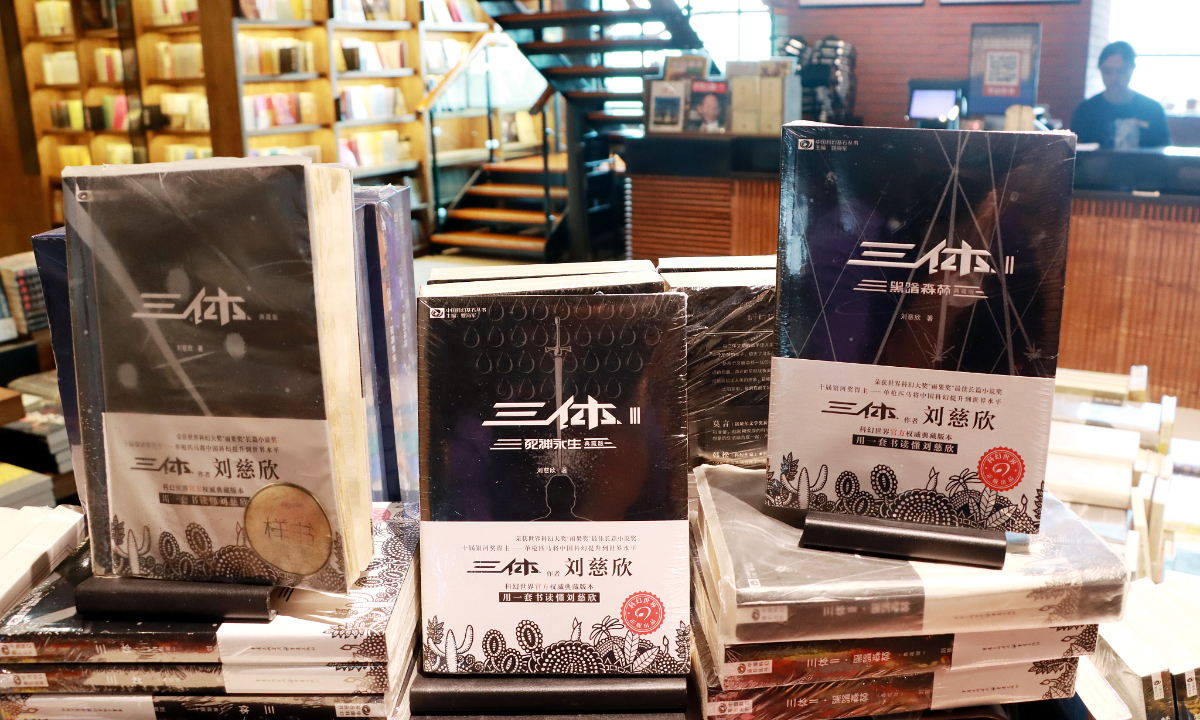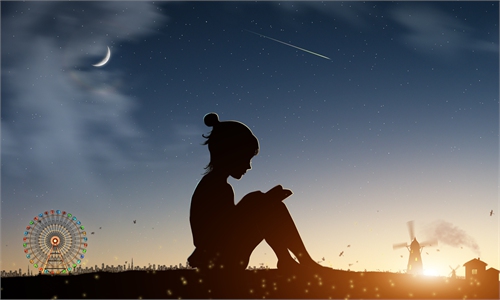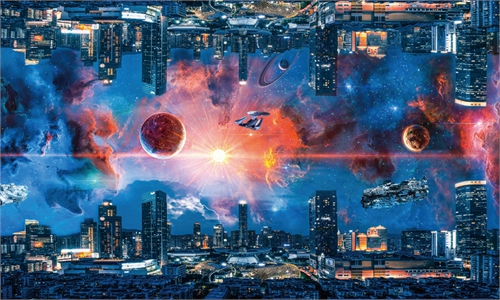ARTS / BOOKS
Reading ‘The Three-Body Problem’ makes me see growth of Chinese sci-fi

Books of The Three-Body Problem trilogy Photo: VCG
The book The Three-Body Problem is thought-provoking to me. It presents the contact, conflict, and coexistence between humanity and alien civilizations from a unique perspective and with a grand narrative.
The Three-Body Problem was written by Chinese writer Liu Cixin. It is a science fiction novel that masterfully intertwines complex scientific concepts with deep philosophical questions about humanity and civilization.
Through in-depth exploration in various fields such as science, philosophy, and politics, the book triggered my profound thinking about human destiny, the mysteries of the universe, and the relationships between civilizations.
First of all, the title refers to a famous problem in classical mechanics, where predicting the motion of three celestial bodies becomes nearly impossible due to their gravitational interactions. This problem serves as a metaphor for the unpredictable and chaotic interactions between civilizations, particularly as humans encounter the Trisolarans. The instability in the Trisolaran system mirrors the instability in human society as it grapples with the implications of an alien presence.
The world view in the novel is extremely grand. With his rich imagination, the author, Liu Cixin, constructs a universe full of unknowns and challenges. The collision and exchange of different civilizations in the story make me realize that there may be countless kinds of intelligent life in the universe, and we humans are just one of them. This recognition makes me cherish and love our Earth even more.
The author seamlessly integrates complex scientific theories, such as quantum mechanics and astrophysics, into the narrative. These concepts are not just decorative elements; they drive the plot forward and challenge the reader to think deeply about the nature of the universe. The use of the "Sophons," particles that can spy on humans by manipulating quantum states, is a brilliant example of how advanced science fiction can challenge our understanding of reality.
However, The Three-Body Problem is not just a simple science fiction work. It also contains profound insights into humanity, society, and the future of humanity.
The novel delves into humanity's varied responses to the possibility of an alien civilization. Some characters, like Ye Wenjie, become disillusioned with humanity and see the Trisolarans as a potential savior, while others view them as a threat. This dichotomy reflects real-world debates about the consequences of contact with extraterrestrial life.
In the story, when humans face the threat of alien civilizations, various complex emotions and behaviors are displayed, which makes me reflect on the nature of humanity and the possible choices we may make in the face of a crisis. At the same time, the novel also explores the possible ways of communication between different civilizations in the universe, and how to achieve peaceful coexistence while ensuring survival.
Overall, reading The Three-Body Problem was an exciting and inspiring journey. It not only expanded my imagination but also has allowed me to think more deeply about the universe, life, and the future of humanity.
Other than the book itself, The Three-Body Problem has played a pivotal role in the development and recognition of Chinese science fiction, both domestically and internationally.
In 2015, it became the first Asian novel to win the prestigious Hugo Award. This achievement not only brought global attention to Liu as an author but also highlighted Chinese science fiction as a serious and innovative field. The international success of the novel has paved the way for other Chinese science fiction writers to gain recognition and readership outside of China.
The novel's success has sparked a broader interest in science fiction within China, both among readers and in popular culture. It has inspired adaptations in various media, including film, television, and even virtual reality, further embedding science fiction into the mainstream. This increased visibility has encouraged more writers to explore the genre, enriching the landscape of Chinese literature with diverse voices and stories.
This novel will undoubtedly leave a significant mark in the history of science fiction literature.
The author is a student at the Affiliated High School of Beijing Foreign Studies University.



